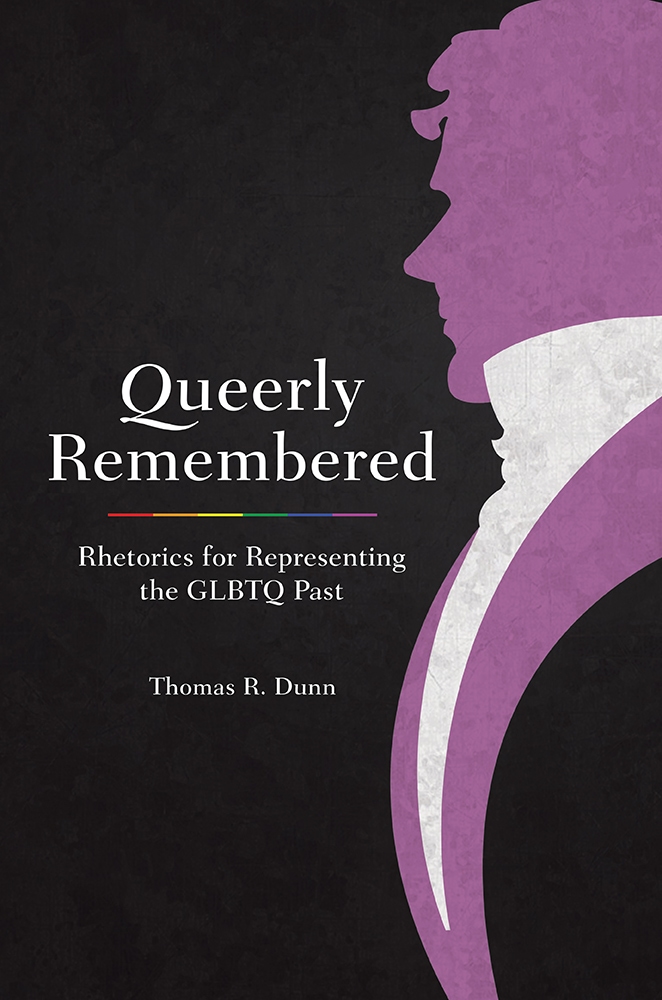An interdisciplinary examination of the strategies GLBTQ communities have used to advocate for political, social, and cultural change
Queerly Remembered investigates the ways in which gay, lesbian, bisexual, transgender, and queer (GLBTQ) individuals and communities have increasingly turned to public tellings of their ostensibly shared pasts in order to advocate for political, social, and cultural change in the present. Much like nations, institutions, and other minority groups before them, GLBTQ people have found communicating their past(s)—particularly as expressed through the concept of memory—a rich resource for leveraging historical and contemporary opinions toward their cause. Drawing from the interdisciplinary fields of rhetorical studies, memory studies, gay and lesbian studies, and queer theory, Thomas R. Dunn considers both the ephemeral tactics and monumental strategies that GLBTQ communities have used to effect their queer persuasion.
More broadly this volume addresses the challenges and opportunities posed by embracing historical representations of GLBTQ individuals and communities as a political strategy. Particularly for a diverse community whose past is marked by the traumas of the HIV/AIDS pandemic, the forgetting and destruction of GLBTQ history, and the sometimes-divisive representational politics of fluid, intersectional identities, portraying a shared past is an exercise fraught with conflict despite its potential rewards. Nonetheless, by investigating rich rhetorical case studies through time and across diverse artifacts—including monuments, memorials, statues, media publications, gravestones, and textbooks—Queerly Remembered reveals that our current queer "turn toward memory" is a complex, enduring, and avowedly rich rhetorical undertaking.
Thomas R. Dunn is a public address scholar, rhetorical critic, and an assistant professor of communication studies at Colorado State University. His research examines the intersection of GLBT and queer culture, politics, and rhetoric with a focus on public memory, visual rhetoric, and the rhetoric of the built environment. Dunn is the 2012 winner of the National Communication Association's Gerald R. Miller Outstanding Doctoral Dissertation Award and the 2011 winner of the National Communication Association's Stephen E. Lucas Debut Publication Award. He resides in Fort Collins, Colorado.
"This is a great book! Developing queer monumentality as a critical lens, Dunn expertly analyzes a fascinating array of memory practices: bronze statuary, public discourse, school textbooks, and contemporary gravescapes. Queerly Remembered powerfully elucidates the promise and the peril of crafting a politically salient, life-affirming, and perdurable GLBTQ past."—Angela G. Ray, Northwestern University
"In this carefully researched and engagingly written project, Thomas Dunn shows us that queer memory comes in many rhetorical forms. He invites us both to recognize the increasing cultural value of what he compellingly terms queer monumentality—even as he urges us to question and improve it. Dunn's book will be immensely valuable to scholars and students of rhetoric, GLBTQ studies, and public memory alike."—Cara Anne Finnegan, University of Illinois at Urbana-Champaign
"Thomas R. Dunn's book gives renewed voice to gay pioneers and lesbian artists; explores the tragic, yet crucial, complexities of remembering queer death; and calls upon rhetoricians to (re)theorize, (re)write, and do queer memory better... Queer memories are, Dunn shows, vibrant opportunities for GLBTQ worldmaking, past and present."—QED
